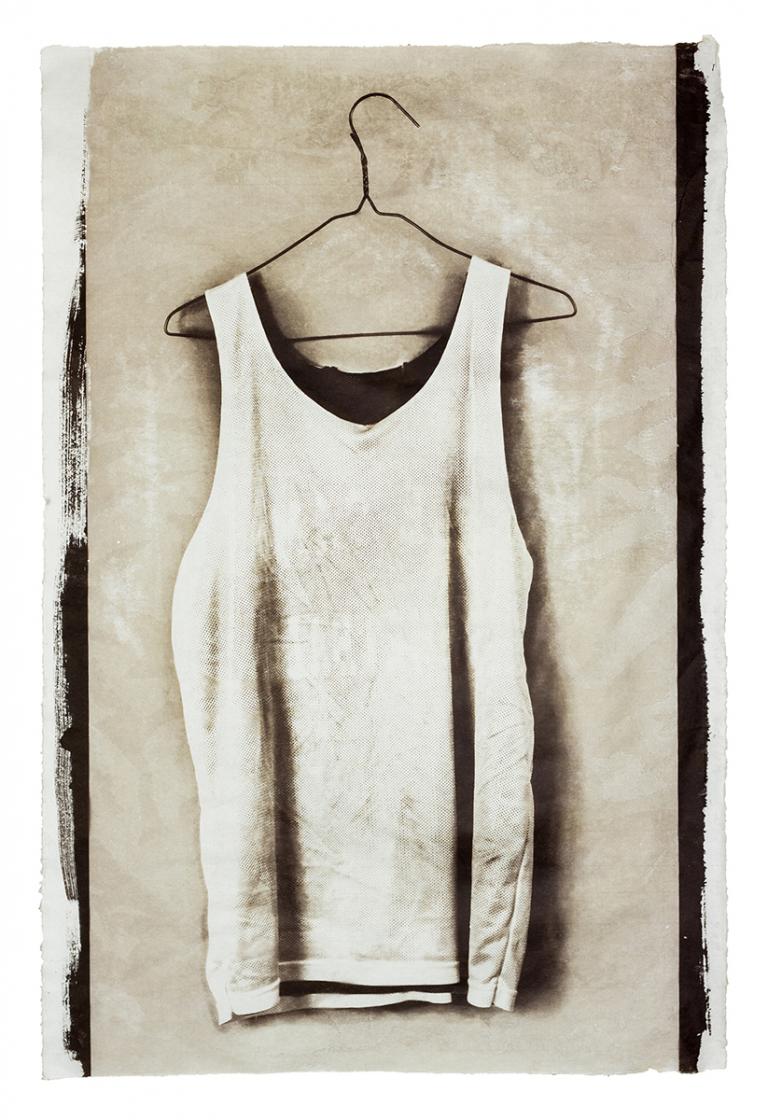
UNL MFA Student wins National SPE Conference Scholarship
calendar icon09 Dec 2013

Chadric Devin, a second-year Master of Fine Arts student in photography from Cole Camp, Mo., has received a 2014 Society for Photographic Education (SPE) Student Award to attend the national conference in Baltimore in March.
“I am so pleased that Chadric has won a national scholarship to attend the SPE Conference in Baltimore,” said Professor of Art Dana Fritz. “He has been a dynamic force in our department since they day he arrived. In addition to pushing the boundaries of his own work, he is also very involved in the photography community through curatorial and outreach activities. I’m thrilled that his strong work has been recognized at the national level.”
SPE received 118 applications for the scholarship and only 10 were selected nationally. The award includes a one-year student membership in the organization, a full conference fee waiver and a $500 travel stipend to attend the 2014 National Conference. He will also have his own table to display his work during the portfolio walkthrough at the conference.
“I was really excited,” Devin said. “I’m just grateful for the opportunity to really show what we’re doing here and our emerging and growing photography program at UNL. Just the opportunity to share my work with such a wide audience is great.”
This year’s theme for the conference, “Collaborative Exchanges,” fit well with Devin’s work.
“I work very interdisciplinary, in terms of the processes I use and the way that I think about my work,” he said. “So for me, ‘Collaborative Exchanges’ is exactly what I’m interested in, not only in my work, but as an art practice in general. I feel we can always learn from other areas and people with different experiences than our own. That sense of collaboration and community is extremely important to me.”
Devin said his own work has changed during the course of his graduate study at UNL.
“I guess the things that I always find myself coming to are social relationships within the male gender and often looking at familial relationships as well, in terms of how you relate to members of your family, and using those as metaphors for how society interacts,” he said. “I’m also really interested in the physicality of objects, and how you can really shape or utilize them to represent things that are often of a non-physical nature.”
In examining this, Devin experiments with different kinds of media.
“I work on handmade papers, athletic tape, plaster, really anything,” he said. “In the same way, I choose my imagery. I really love the interplay between the physical and the non-physical, and how those things are independent, and in a way, also dependent on each other.”
Devin said he really just loves ideas, and so graduate work has allowed him to be more focused. The way to do that was to pick one medium, which is the photographic process that he uses. But he explores it with different materials.
“Instead of just printing on regular Western papers, I switched to Eastern papers and Japanese papers,” Devin said. “I’m really interested in how the paper itself carries the same ideas that my work does, in terms of talking about gender. For example, the idea that the male gender is more complex than just outward masculinity or strength, but it can also have this sensuality or this fragility.”
The paper he uses to print on has those same traits.
“Japanese paper is structurally manufactured to be strong, but when I put it through these processes, I actually push the paper to a point that it becomes so delicate and fragile that it can tear,” he said. “And I love it that it embodies both of those things.”
His work almost resembles printmaking, which he appreciates.
“There is something about the handmade quality,” he said. “I think all artists have a desire for handmade work, or we really understand it. I use a lot of printmaking techniques. I love the exchange between ‘Is this photography or is this printmaking?’ It’s a photographic process, but I make it in the same way a printmaker makes work. I’m just making the work, and it’s allowing me to express myself in both ways.”
He is looking forward to showing his work at the conference.
“You often get to have reviews with people that you would never have the chance to talk with one on one and actually critique your work and give you advice,” Devin said. “Having that outside opinion is overwhelmingly beneficial. To have an outside perspective gives you fresh eyes on your work.”
His work still comes back to the ideas.
“I still think the photographic image is important in my work, but I’m more interested in just figuring out the best way to communicate an idea,” Devin said. “So for me, if I never make another photograph again, I’d be fine as long as I’m making the work that I feel most adequately expresses my ideas.”